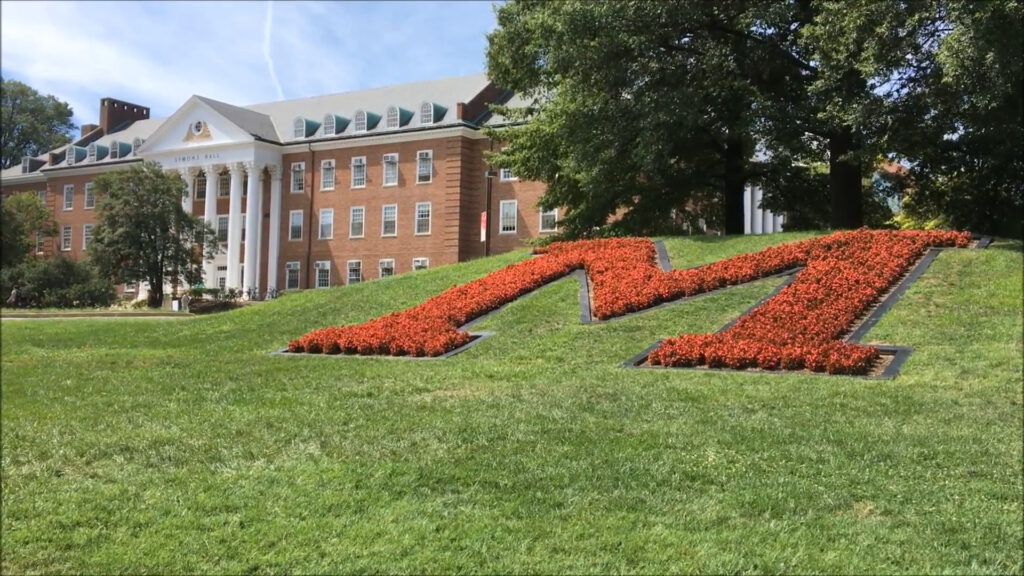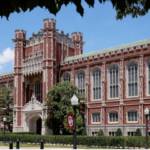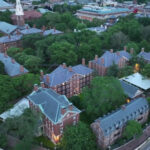Is the University of Maryland a Party School, As in the Chinese Communist Party?

UMD Faces Scrutiny over its China connections
Last Sunday, June 1st, The Wall Street Journal ran an exposé with the provocative headline: “Harvard Has Trained So Many Chinese Communist Officials, They Call It Their ‘Party School.’” According to the paper: “For decades, the party has sent thousands of mid-career and senior bureaucrats to pursue executive training and postgraduate studies on U.S. campuses, with Harvard University a coveted destination described by some in China as the top ‘party school’ outside the country.” [i]
While elite institutions like Harvard face scrutiny for their ties to the Chinese Communist Party (CCP), unsettling questions also need to be asked about the University of Maryland, too. Is UMD on its way to becoming a “party school”—not in the collegiate sense of beer pong and tailgates, but as a soft-power satellite for the CCP? These concerns are more than hypothetical.
UMD’s engagement with China dates back to 1915 when they enrolled their first Chinese student, Chun-Jun “Constant” Chen, from Shanghai.[ii]
Over the years, that relationship has deepened, most notably with the establishment of the Confucius Institute at Maryland (CIM) in 2004, the first such institute in the United States. These institutes, funded by the Chinese government, were marketed as centers for Chinese language and culture. However, by 2020, UMD was compelled to close its Confucius Institute due to mounting bipartisan pressure and changes in federal funding laws.
That rare political consensus—from the progressive New Republic to the conservative National Association of Scholars (NAS)—should have raised red flags. As the Heritage Foundation noted, Confucius Institutes have functioned less as cultural centers and more as strategic nodes in China’s “soft war” against the West. Rachelle Peterson of NAS summed it up bluntly: these centers aim to “teach political lessons that unduly favor China.” [iii]
The bipartisan concern was not paranoia—it was prudence.
This past March, the U.S. House Select Committee on the Chinese Communist Party issued formal letters to several universities, including the University of Maryland, demanding transparency over their connections with Chinese nationals, particularly those involved in sensitive research. [iv]
As reported in The Diamondback in an article titled, “UMD Community Criticizes ‘Xenophobic’ Federal Inquiry about Chinese Students, Faculty,” UMD President Darryll Pines responded, emphasizing the university’s commitment to academic freedom and the First Amendment—indeed laudable principles.
“We will do our very best to be responsive to the Federal inquiry while upholding… our commitment to First Amendment rights and academic freedom,” Pines said. The university further encouraged affected students to seek support services.”[v]
The subtext is unmistakable: the administration seems more concerned with managing campus reaction than addressing national security concerns. It’s not a response to a foreign espionage concern. It’s PR spin.
The scrutiny comes just a year after UMD reached a settlement with the US Justice Department, in which it agreed to pay $500,000 for failing to disclose Chinese funding in research grants. The Department of Justice stated that researchers had submitted grant proposals without properly disclosing foreign support, a violation that extended beyond paperwork and into the realm of potential influence operations.[vi]
Meanwhile, both the FBI and the Department of Homeland Security have published extensive guidance warning of Chinese espionage in academic institutions. A 2019 FBI report explicitly warned of “nontraditional collectors of intelligence,” often embedded in research programs. DHS echoed those concerns as recently as June 2024, focusing on how sensitive STEM research can be siphoned off under the guise of educational exchange. [vii] [viii]
Universities like the University of Maryland are at a crossroads. They can no longer pretend that every international collaboration is benign, nor can they claim ignorance when red flags are waving from every direction—bipartisan congressional inquiries, federal law enforcement, and investigative journalists alike.
When institutions accept foreign funding without transparency, deflect national security concerns with platitudes about academic freedom, and downplay violations until forced into settlements, they risk becoming unintentional instruments of foreign influence.
No, UMD is not a “Party School” in the traditional sense. But unless it reckons with its entanglements—and the very real risk they pose—it may become one in the CCP’s mold.
The University of Maryland owes its students, faculty, and the taxpayers who fund it something more than vague statements and quiet settlements. It owes them vigilance.
____________________
[i] “Harvard Has Trained So Many Chinese Communist Officials, They Call It Their ‘Party School’”- Kennedy School of Government is favored by party cadres seeking career boosts, Wall Street Journal, June 1, 2025, by Chun Han Wong https://www.wsj.com/world/china/china-communist-party-harvard-f855112b
[ii] https://marylandglobal.umd.edu/about/marylands-global-story
[iii] See https://www.heritage.org/homeland-secur6ity/commentary/confucius-institutes-chinas-trojan-horse; see also https://www.gao.gov/products/gao-24-105981
[iv] https://selectcommitteeontheccp.house.gov/media/letters/letter-dr-darryll-j-pines-president-university-maryland-transparency-universities
[v] https://dbknews.com/2025/04/04/umd-students-federal-inquiry-chinese-students-researchers
[vi] https://www.justice.gov/usao-md/pr/university-maryland-college-park-agrees-pay-500000-resolve-allegations-it-failed
[vii] FBI https://www.fbi.gov/file-repository/counterintelligence/china-risk-to-academia-2019.pdf/view
[viii] DHS https://www.dhs.gov/sites/default/files/2024-06/24_0612_hsapc_fmi_subcommittee_report.pdf




